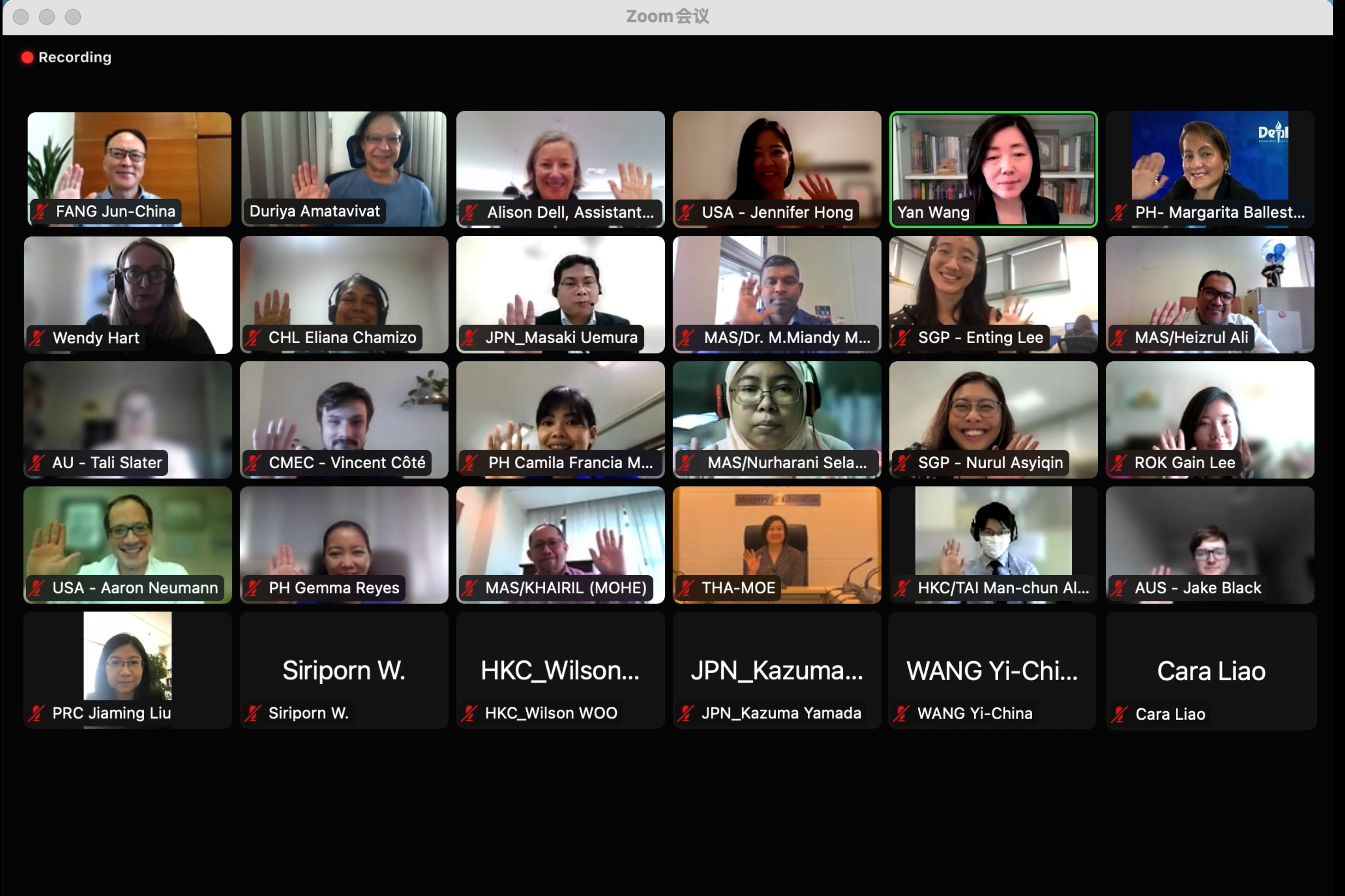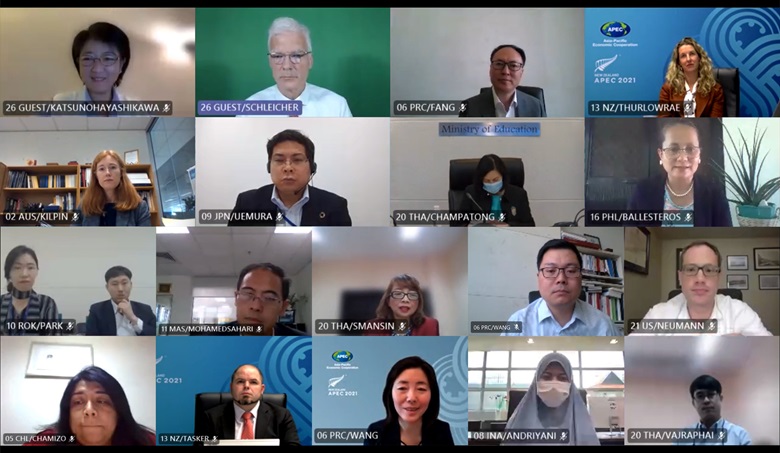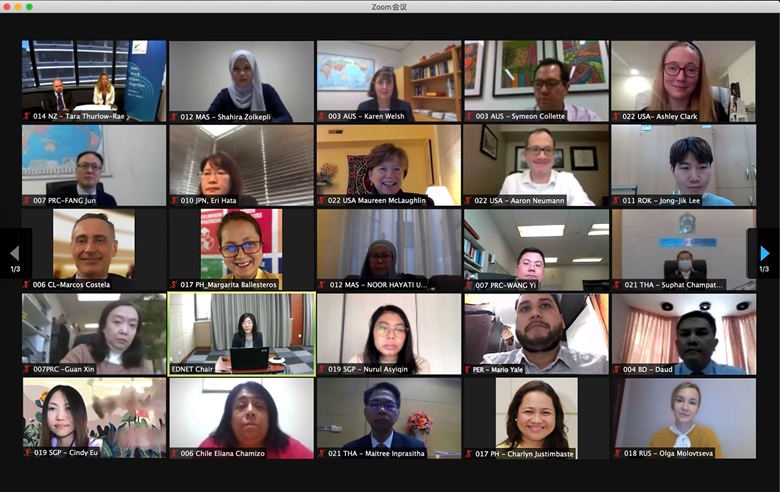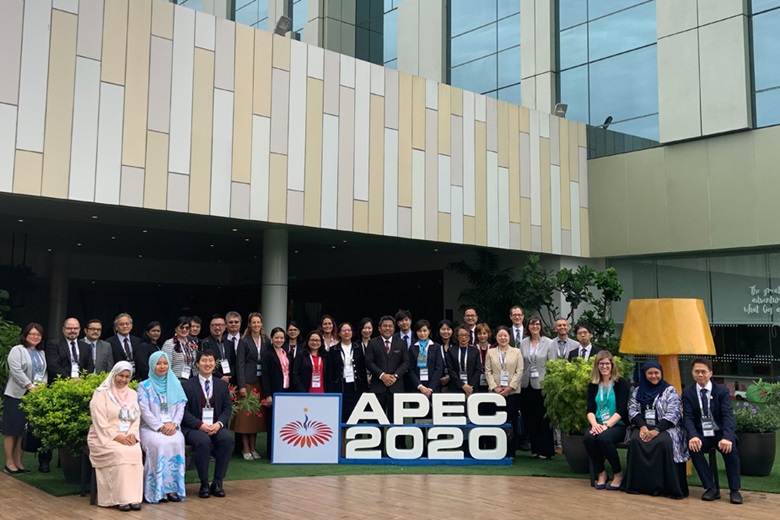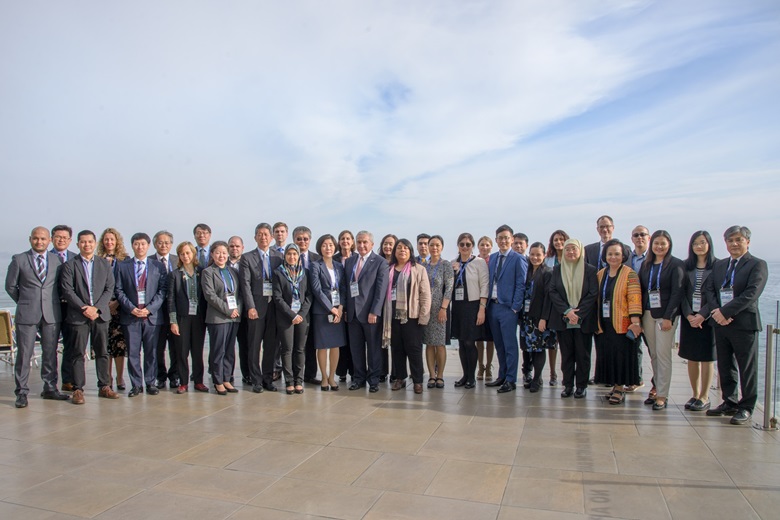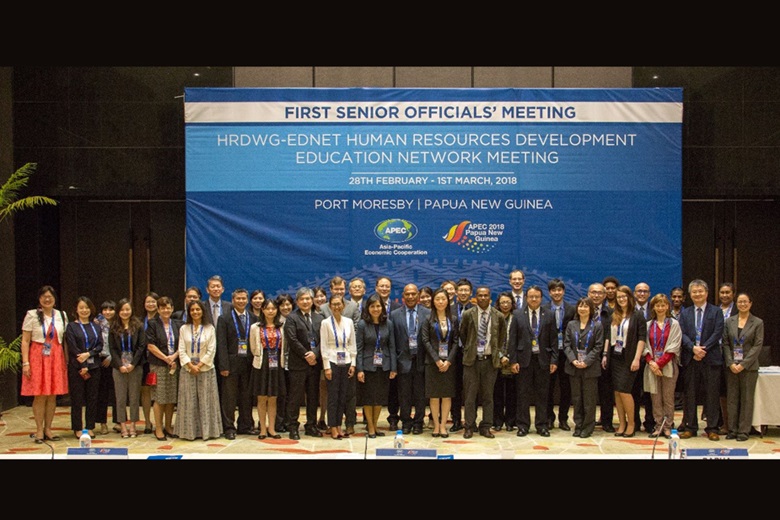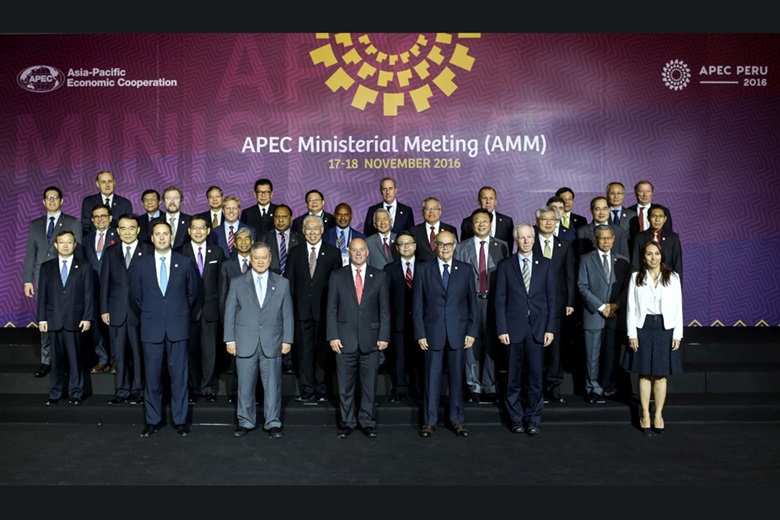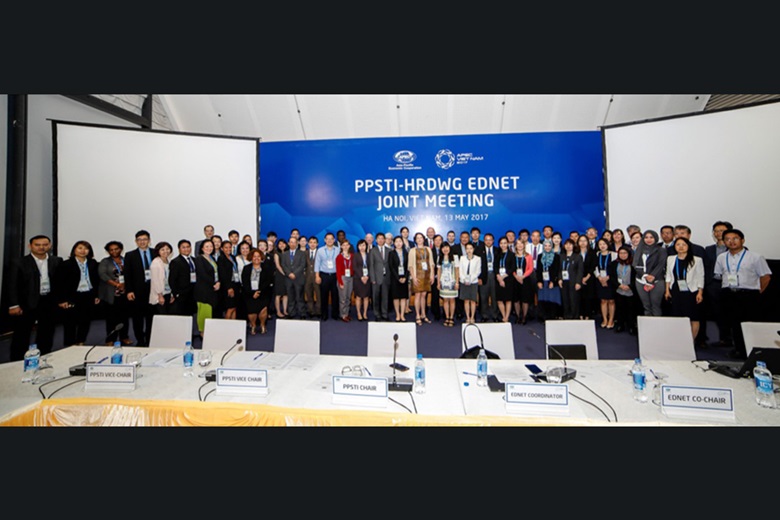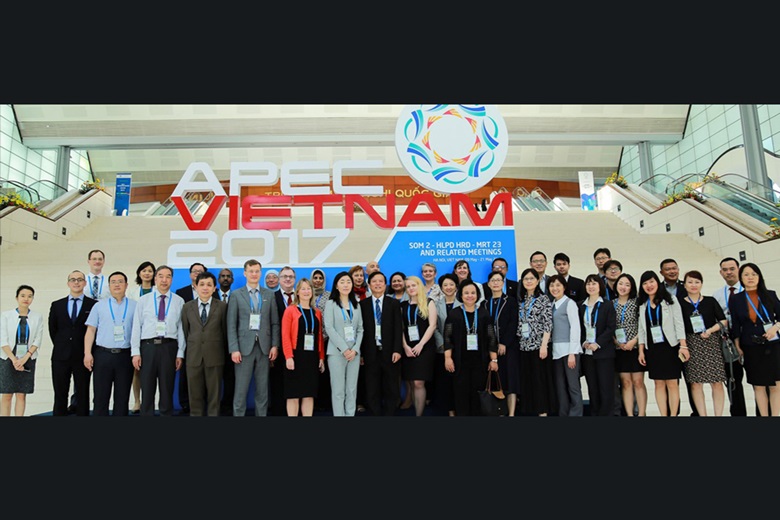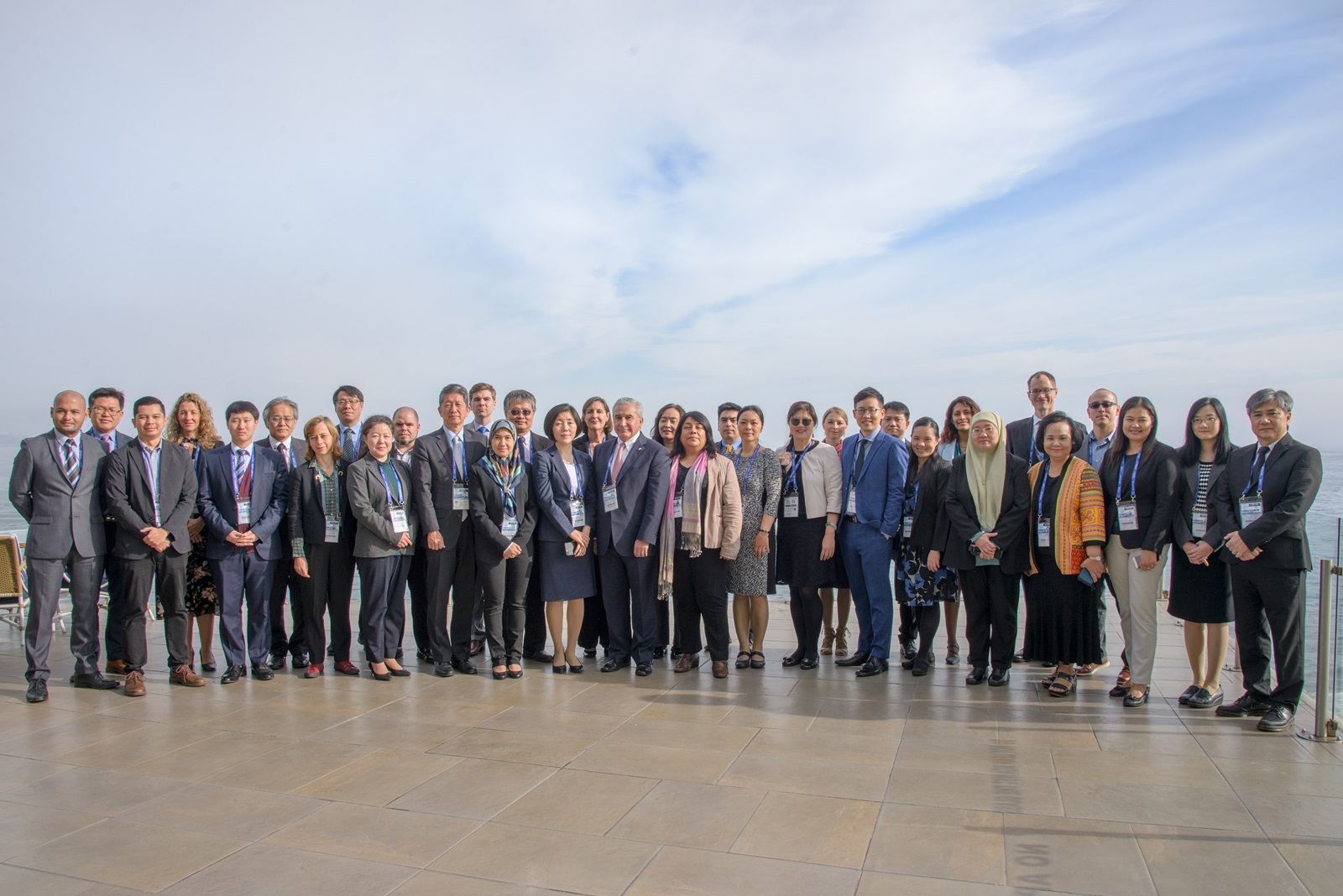
Viña del Mar, Valparaíso, Chile, 5-6 May 2019
Delegates from 16 APEC member economies – Australia; Brunei Darussalam; Chile; China; Hong Kong, China; Indonesia; Japan; Korea; Malaysia; New Zealand; Peru; Russian Federation; Singapore; Chinese Taipei; Thailand and the United States -- gathered at Viña del Mar on 5-6 May 2019 for the 36th APEC HRDWG Education Network Meeting to conclude previous work and to look at future educational collaboration.
Three completed, twelve ongoing and seven newly-proposed projects were presented at the meeting by member economies. On the basis of their 12-year partnership, Japan and Thailand, together with Chile, collaborated on a project entitled “Inclusive Mathematics for Sustainability in a Digital Economy” -- it aims to create a high-quality curriculum framework, common to all APEC economies, which addresses concerns about mathematical and computational thinking in STEM subjects in the digital economy.
Australia put forward a new project entitled “Australia-APEC Online Education Data Workshop Series”. New Zealand proposed promoting student well-being in the digital age by conference and establishing a professional community. And Japan, Malaysia and Thailand, building on the “Inclusive Mathematics for Sustainability in a Digital Economy”, put forward their newly-proposed project “Informatics and Data Science Education Reform for Digital, Inclusive and Sustainable Society”.
At a policy discussion session, a number of member economies made presentations on how educational changes could address the demands of the digital era. Indonesia shared its findings on leveraging digital technology to improve education quality in rural and remote areas; while the United States reported results from its project, which focused on how digital skills’ development and innovative digital and distance-learning technologies could help build a 21st century workforce.
Regarding disability issues from an education perspective, delegates agreed to have this as a standing item for policy discussion on the agenda of future EDNET meetings, and consider how disability issues could be integrated into developing education projects and initiatives.
The delegates also deliberated on preparations for the 7th APEC Education Ministerial Meeting and agreed to develop the progress report and submit it to education ministers of APEC member economies regardless of whether they meet in 2020 or not.
In addition, a consensus has been reached on matters relating to APEC Report on Education and Economic Development. To encourage member economies to continue to share knowledge and information, they considered a proposal for all member economies to produce an annual education policy brief or think piece report that could be featured at future EDNET meetings.
The meeting showcased the progress achieved by member economies in education collaboration and explored opportunities for connecting more people in the APEC region.
The meeting was chaired by Dr. Wang Yan, EDNET Coordinator, with Ms. Eliana Chamizo, Officer of International Relations in Ministry of Education of Chile, as co-chair.



